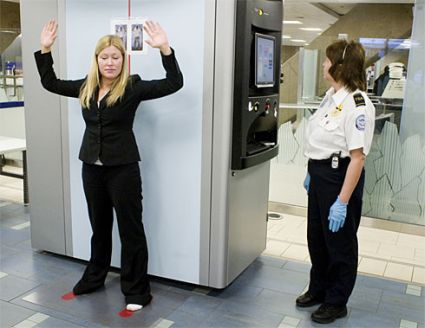Germany opposes "voyeuristic" body scans
 Berlin, Luxembourg - Germany said Friday it would oppose European Union plans for full-body scanners to be used in airports.
Berlin, Luxembourg - Germany said Friday it would oppose European Union plans for full-body scanners to be used in airports.
The devices are accused of carrying out virtual strip searches because they construct an image of each traveller's body without clothing.
"We do not want our federal policemen to be considered voyeurs," said German Interior Minister Wolfgang Schaeuble at a meeting in Luxembourg with his European Union colleagues.
Schaeuble said Germany would not use such scanners as long as they threatened to "ridicule" security operations and undermine people's confidence in the police.
The minister's words echoed remarks made earlier in Berlin by his spokeswoman.
"I can tell you with complete clarity that we are not going to cooperate in this mischief, Gabriele Hermani said at a government news conference.
On Thursday, Germany's federal police (BKA) said it would start studying the devices to establish if they are a threat to health or if they breach German privacy laws.
A BKA spokesman said Germany did not use the scanners "and it is going to stay that way."
There has already been an outcry this week among EU parliamentarians at plans to test the scanners at European airports as an alternative to the practice of stroking hand-held metal detectors over travellers' bodies.
Proponents say the scanners can detect ceramic knives and plastic explosives which are invisible to current detectors, and also avoid the need for guards to "pat down" travellers with their hands.
Germany's main political parties criticize the scanners as a threat to people's personal privacy.
The European Union's top justice official, Jacques Barrot, insisted Friday that the use of such scanners would be on a strictly voluntary basis.
"Passengers would be free to choose between various different inspection systems, and they may well opt for body scanners," Barrot said at the meeting of EU interior ministers.
Body scanners were also defended by French Interior Minister Michele Alliot-Marie, who chaired the meeting in Luxembourg on behalf of the EU presidency.
"Terrorists and delinquents are very clued up on technology, and sometimes they are ahead of us. So we need to use ... all technical advances which are available to us," Alliot-Marie said, adding however that "of course individual liberties also have to be respected".
Body scanners are currently being tested at London's Heathrow and at Amsterdam's Schiphol airports and the European Commission is considering extending their use throughout the 27-member bloc.
Civil rights advocates fear that the images they produce could one day start circulating on the Internet. (dpa)